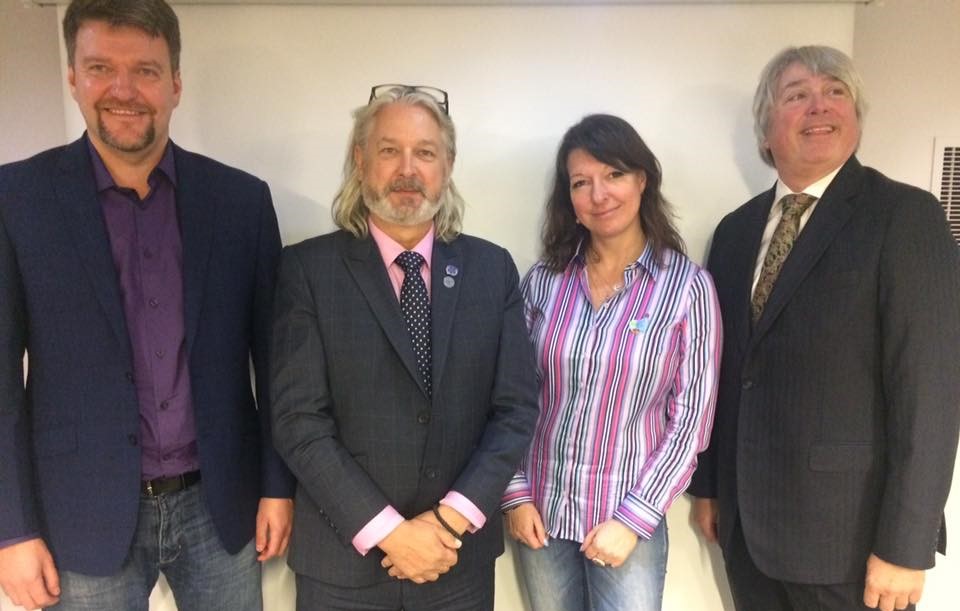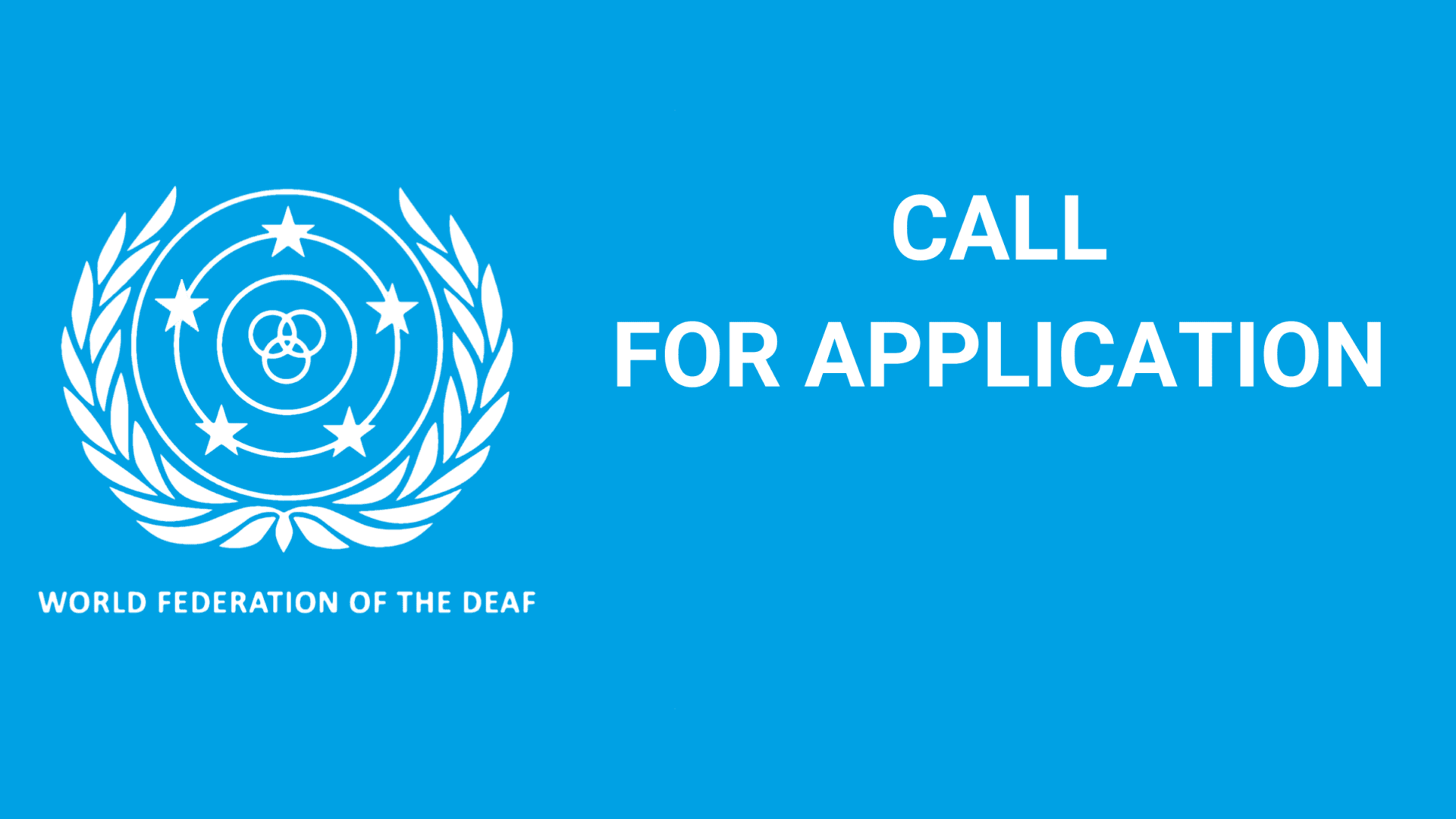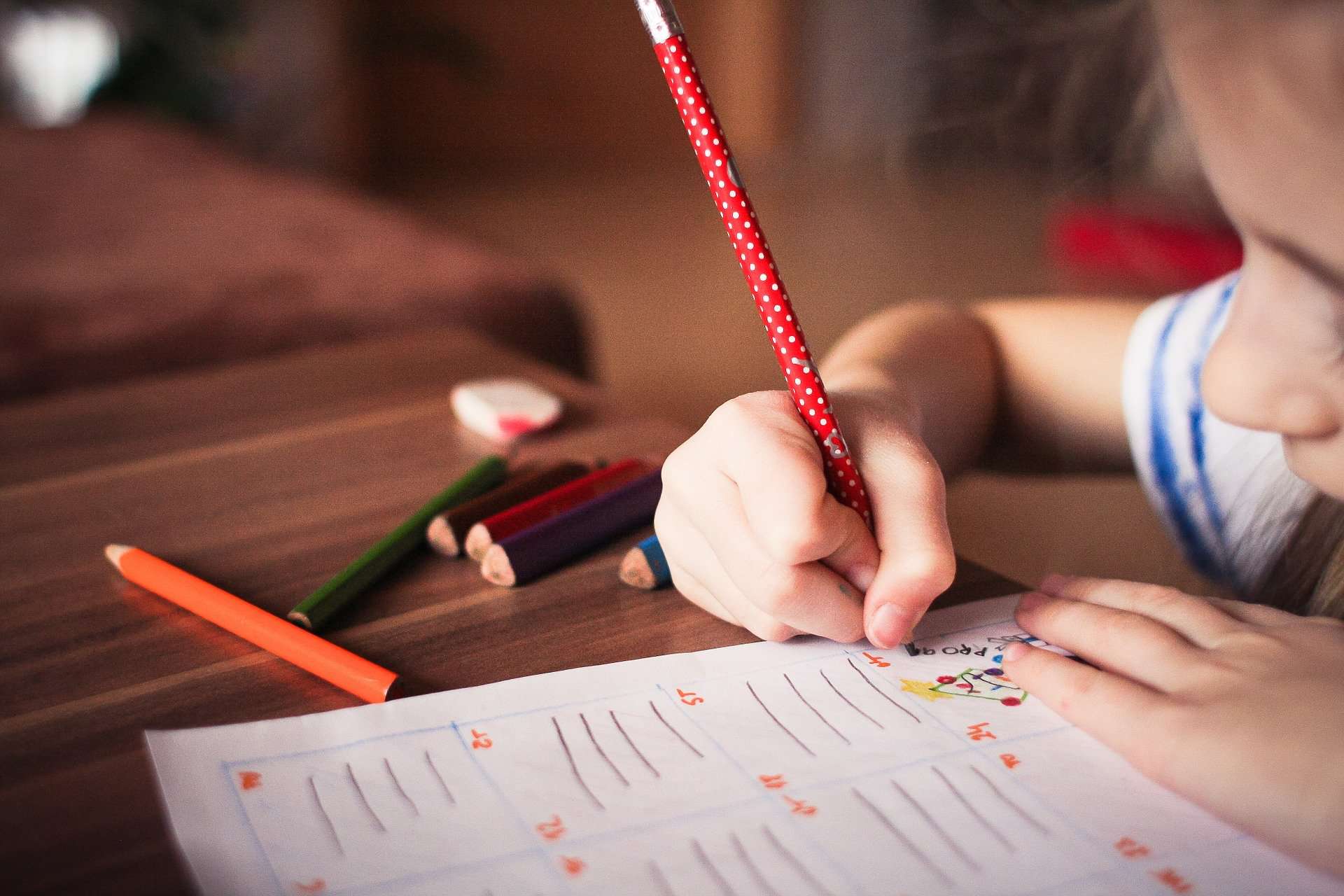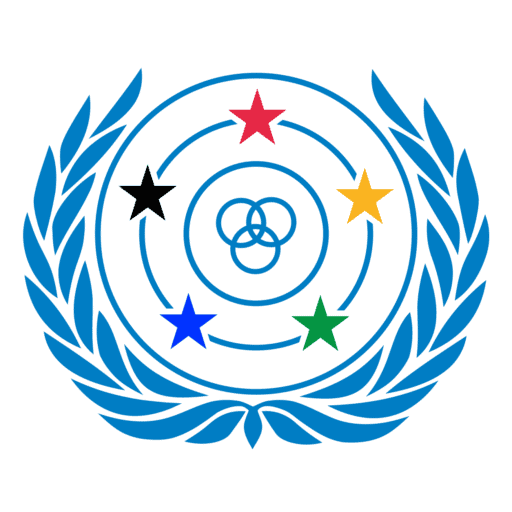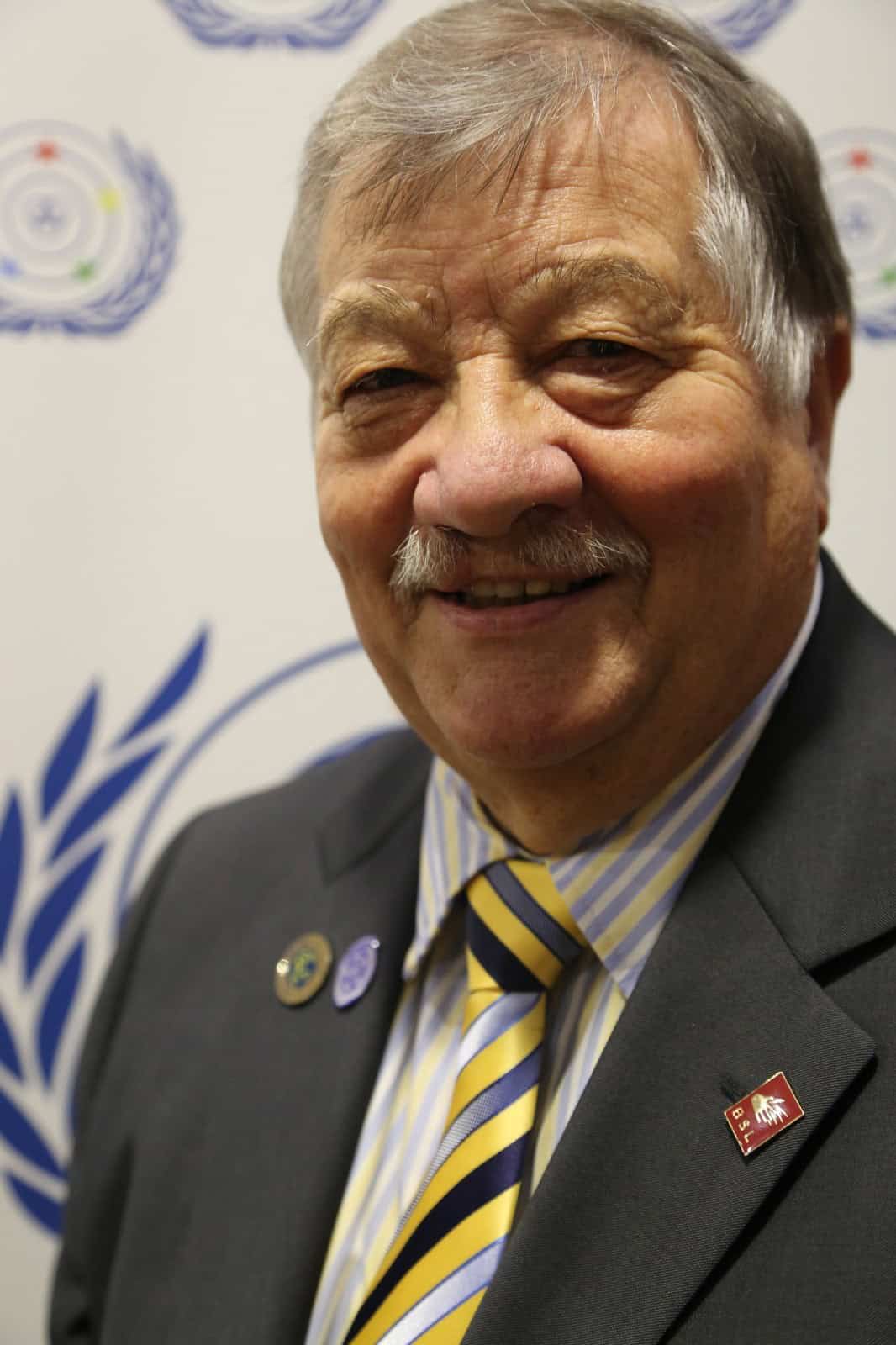Dear Friends,
I’m delighted to see 2017 setting off smoothly for the WFD. In this newsletter issue, I would like to stress the importance of partnership with allies in advocacy for the human rights of the Deaf Community. Allies are people or groups of people who have common interests and beliefs. Together with our allies, we are able to achieve more ensuring the slogans ‘Nothing about us Without Us’ and ‘No one left behind’.
You too play an instrumental role as allies and there are many ways you can do so! One is to raise awareness about the International Week of the Deaf 2017 theme ‘Full Inclusion with Sign Language!’. I’m pleased to share that the IWD 2017 visual campaigns are ready for your use – check it out in this Newsletter issue.
We have also received donations from individuals and organisations all around the world. Financial contributions continue to remain as a priority to ensure the sustainability of the WFD. In this newsletter, Frontrunners will share with you the importance of providing financial support the WFD. Support to the WFD does not necessarily have to be in euros and cents. At the WFD, we have an orchestra of individuals who contribute as volunteers. In this newsletter issue, you get to meet our newsletter editorial team who are responsible for every word you read here.
The past two months in my voluntary capacity as the WFD President and the IDA Chair, I am honoured to be given the opportunity to represent the Deaf Community and the disability community as a whole in several important events. During these forums, I was able to raise the following issues:

Additionally, the WFD also created new partnerships and re-connected with current ones. I am honoured to have personally met with the following partners:
 While we strengthened and recognised new and current allies, I would like to take this opportunity to also pay tribute to Ms Elena Down, our beloved ally. We were saddened to learn of the tragic passing of Ms Down, a self-advocate, activist and advisor who worked to promote the rights of persons with disabilities. Elena was a Senior Technical Advisor on Disability Inclusive Development at CBM Australia, based in Melbourne, and previously served as a Human Rights Officer with the WFD. She contributed significantly to the WFD and will be very much missed.
While we strengthened and recognised new and current allies, I would like to take this opportunity to also pay tribute to Ms Elena Down, our beloved ally. We were saddened to learn of the tragic passing of Ms Down, a self-advocate, activist and advisor who worked to promote the rights of persons with disabilities. Elena was a Senior Technical Advisor on Disability Inclusive Development at CBM Australia, based in Melbourne, and previously served as a Human Rights Officer with the WFD. She contributed significantly to the WFD and will be very much missed.
I will close by thanking all our partners and allies in their relentless support to the WFD.
Enjoy the photo log of the abovementioned events and meetings, and the rest of our newsletter.
Zero Project Conference, 20 – 24 Feb
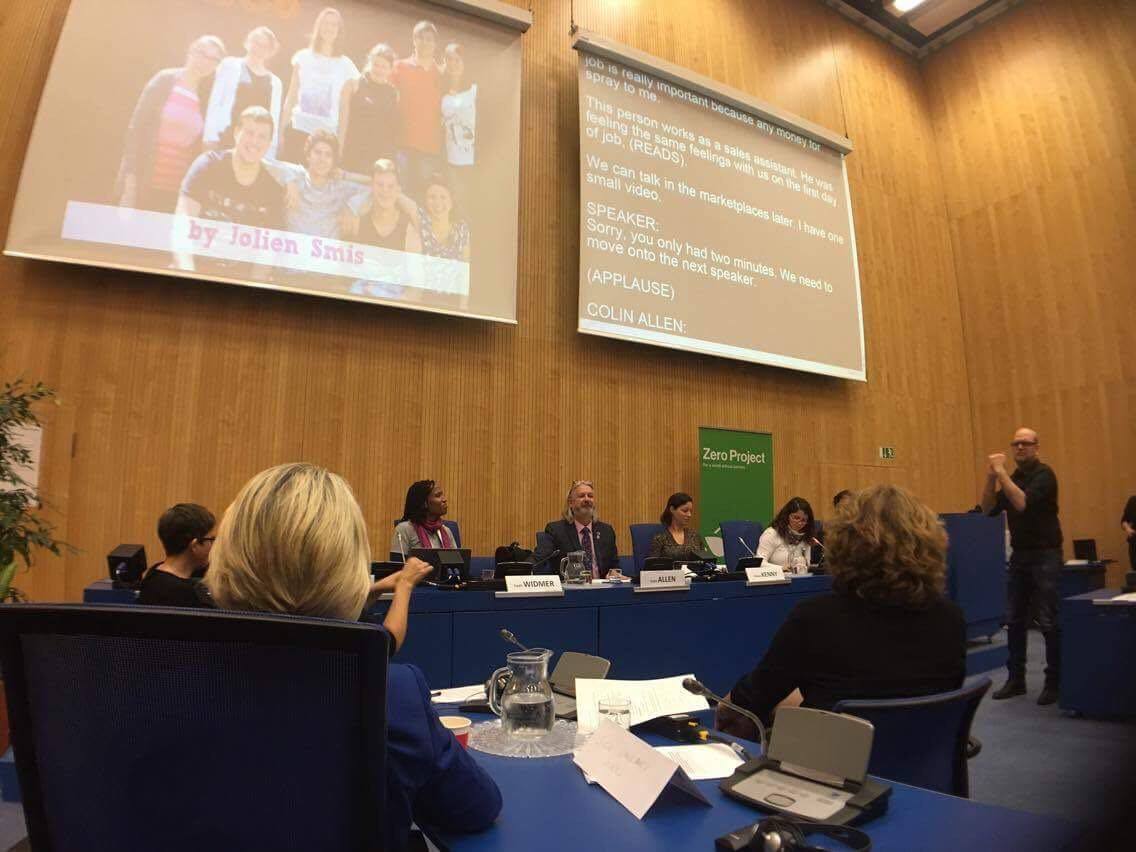
The Zero Project works towards creating a world with zero barriers by sharing models that improve the daily lives and legal rights of all persons with disabilities. Each year, the Zero Project researches a theme from the UN Convention of the Rights of Persons with Disabilities (UN CRPD). The results of the research are presented at an annual Conference which I attended in February at the UN in Vienna. More than 500 delegates attended from more than 70 countries. This year’s Conference focussed on employment, vocational education and training. During the Conference, I chaired a session “Focusing on skills and abilities of special people” which discussed work practices and the skills and needs of job seekers with disabilities including people with autism and epilepsy. One of the presenters was deaf, Ms Tashi Widmer from Jamaica who shared her success in establishing a business “Deaf Can! Coffee“. During the Conference, Ms Helga Stevens, Deaf Member of the European Parliament delivered a keynote presentation about the rights of persons with disabilities including deaf people with particular reference to the UN CRPD. I also had the privilege of meeting Ms Helene Jarmer who is deaf and is a current Member of the Austrian Parliament.
Further information – https://conference.zeroproject.org/
GLAD Network, 28 Feb – 4 Mar
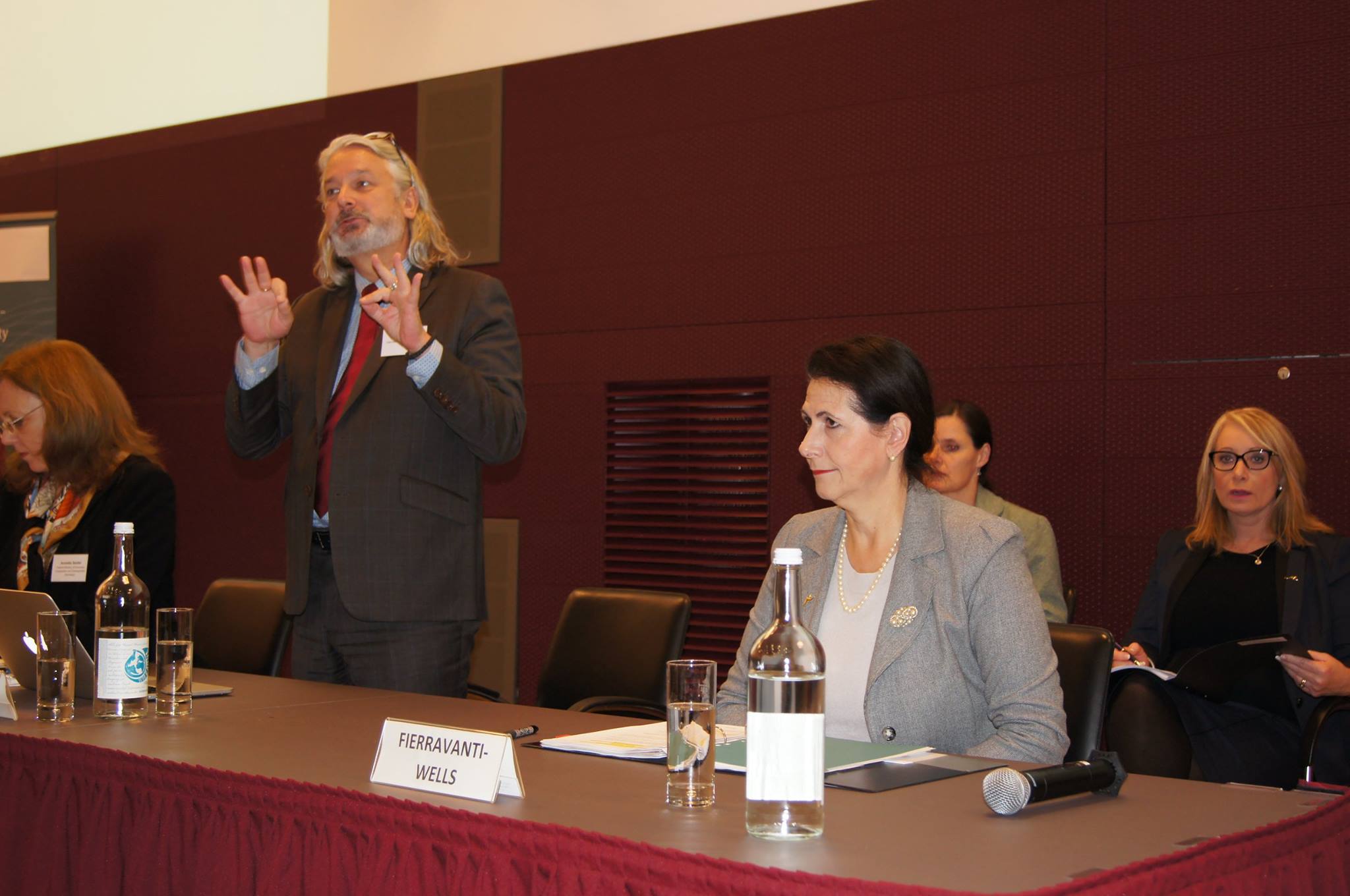 The Global Action on Disability (GLAD) Network met in Berlin on 2-3 March 2017 for the first time since its launch on 3 December 2015. The Australian Department of Foreign Affairs and Trade and the International Disability Alliance co-chaired the meeting. The meeting was hosted by the Federal Ministry for Economic Cooperation and Development of Germany. Representatives from 32 organisations met to identify key actions to advance disability inclusive education, social protection and humanitarian action in developing countries. Representatives also agreed to work together to prioritise the collection and analysis of data to guarantee that people with disabilities and deaf people are not left behind in development and humanitarian efforts. I was fortunate to both chair and present at the opening of the event on behalf of IDA and in doing so, raised the profile of sign language.
The Global Action on Disability (GLAD) Network met in Berlin on 2-3 March 2017 for the first time since its launch on 3 December 2015. The Australian Department of Foreign Affairs and Trade and the International Disability Alliance co-chaired the meeting. The meeting was hosted by the Federal Ministry for Economic Cooperation and Development of Germany. Representatives from 32 organisations met to identify key actions to advance disability inclusive education, social protection and humanitarian action in developing countries. Representatives also agreed to work together to prioritise the collection and analysis of data to guarantee that people with disabilities and deaf people are not left behind in development and humanitarian efforts. I was fortunate to both chair and present at the opening of the event on behalf of IDA and in doing so, raised the profile of sign language.
Further information – http://www.internationaldisabilityalliance.org/glad-march2017
17th CRPD Committee Session, 19-27 Mar
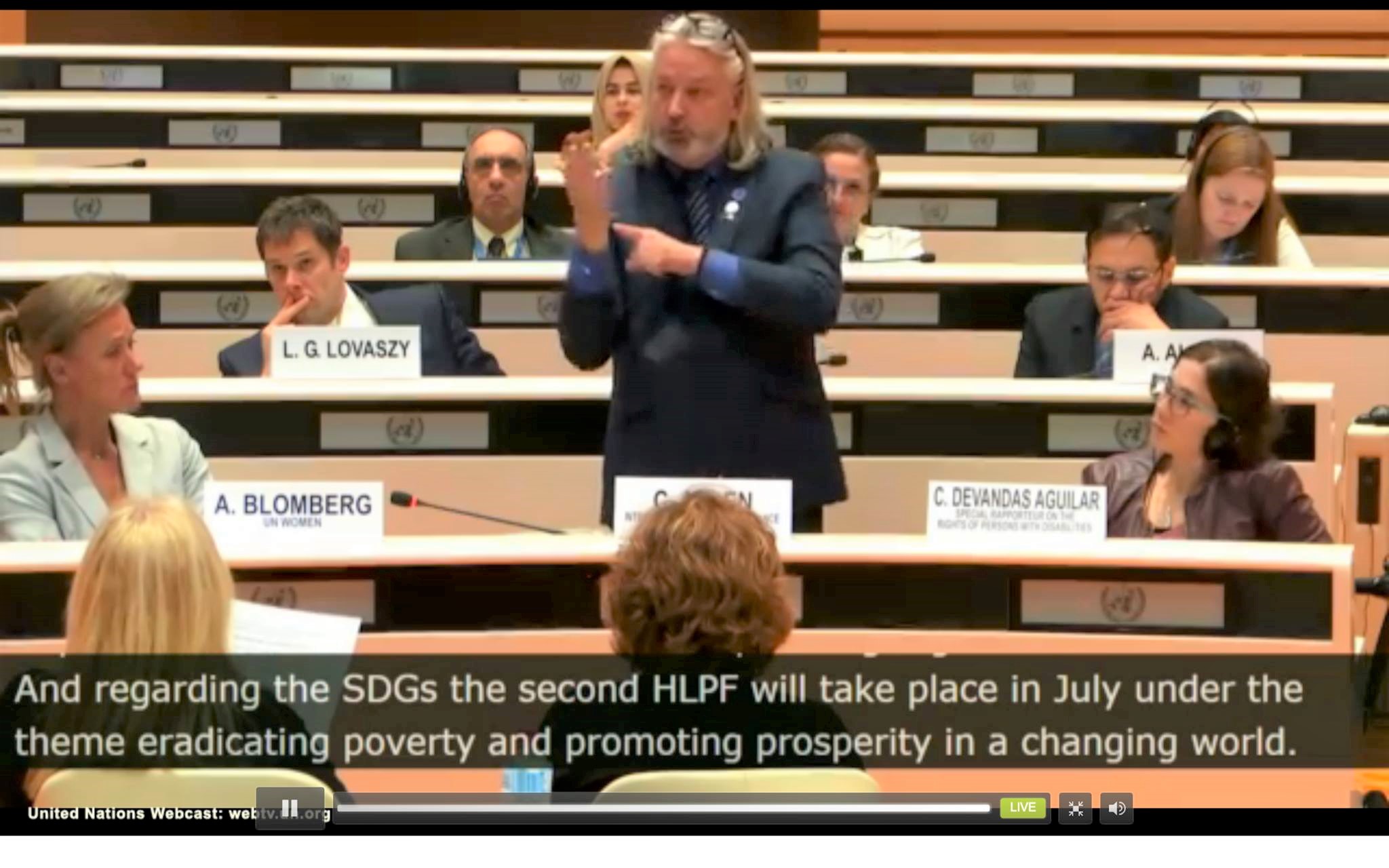
It was a great honour to deliver a statement as IDA Chair at the Opening Session of the 17th Committee Session of the Convention on the Rights of Persons with Disabilities. I began my statement by congratulating Ms Theresia Degener who was elected as the Chairperson of the Committee during this Session. I also welcomed the new members of the CRPD Committee, Mr Al Saif, Mr Chaker, Mr Ishikawa, Mr Kabue, Mr Martin and Dr Rukhledev who will undoubtedly contribute to the work of this Committee.
IDA and WFD continue to work tirelessly to improve the accessibility of the UN in Geneva and New York. Even today, ten years after the adoption of the CRPD, providing sign language interpretation is not always automatically provided at UN level. Although still a work in progress, small achievements with this advocacy work continue to be made. We welcome the efforts of the CRPD Committee Secretariat to ensure a higher level of accessibility, for instance through video conferences with interpretation, including sign language interpretation, for private briefings with DPOs. With webcasting, we are pleased that the United Nations has taken over webcasting of treaty body sessions and hope that it is provided in an accessible manner, especially in the language of the country concerned and including sign language interpretation.
Light for the World, 24 February
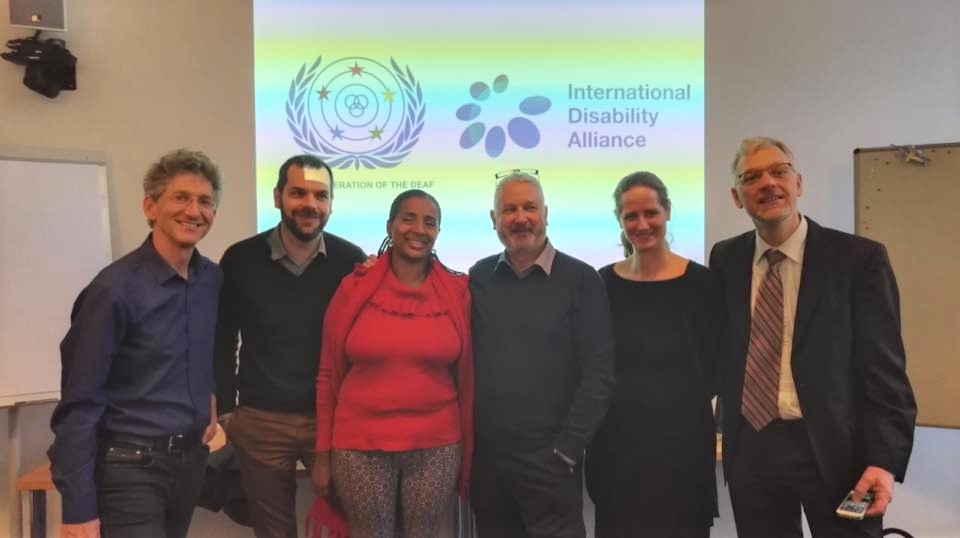 In 2015, I was invited by Light for the World, an international disability and development organisation whose vision is an inclusive society where no one is left behind, to visit the Deaf Community in Papua New Guinea. As a result of this collaboration, recently whilst in Austria where the Light for the World headquarters is based, I had the opportunity to present a session on Deaf Human Rights for their staff so they could learn more about issues related to the Deaf Community such as sign language work and the rights of deaf people and particularly deaf children to use sign language in educational settings in developing countries. Light for the World cooperates with the Deaf Community in a number of countries in which they provide support for Deaf Education and Sign Language Work. Light for the World has two deaf board members, Mr Johan Wesemann who is a Board member in The Netherlands and Ms Deborah Iyute who is a representative on the International Board of Trustees. I am very proud of their work especially as they were previous board members of the World Federation of the Deaf. I also participated in an interview in which I shared the importance of every deaf person having access to Sign Language – this interview was published on their website with the title: “We have become disabled by community attitudes”- read further via https://www.light-for-the-world.org/we-have-become-disabled-community-attitudes
In 2015, I was invited by Light for the World, an international disability and development organisation whose vision is an inclusive society where no one is left behind, to visit the Deaf Community in Papua New Guinea. As a result of this collaboration, recently whilst in Austria where the Light for the World headquarters is based, I had the opportunity to present a session on Deaf Human Rights for their staff so they could learn more about issues related to the Deaf Community such as sign language work and the rights of deaf people and particularly deaf children to use sign language in educational settings in developing countries. Light for the World cooperates with the Deaf Community in a number of countries in which they provide support for Deaf Education and Sign Language Work. Light for the World has two deaf board members, Mr Johan Wesemann who is a Board member in The Netherlands and Ms Deborah Iyute who is a representative on the International Board of Trustees. I am very proud of their work especially as they were previous board members of the World Federation of the Deaf. I also participated in an interview in which I shared the importance of every deaf person having access to Sign Language – this interview was published on their website with the title: “We have become disabled by community attitudes”- read further via https://www.light-for-the-world.org/we-have-become-disabled-community-attitudes
Deaf Skills International Association (DSIA), 27 Feb
